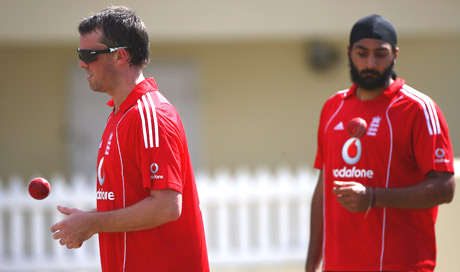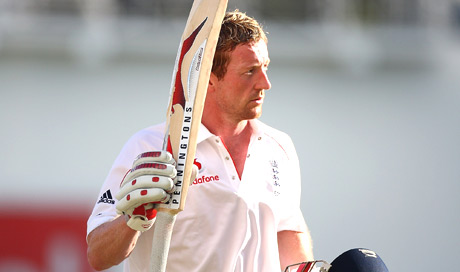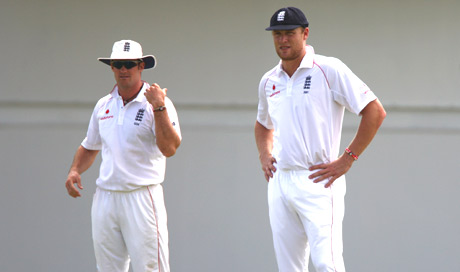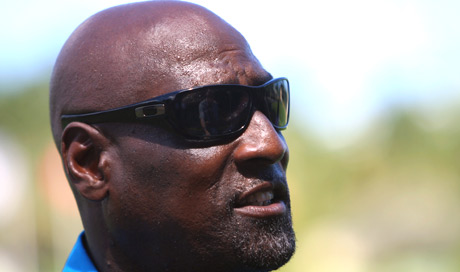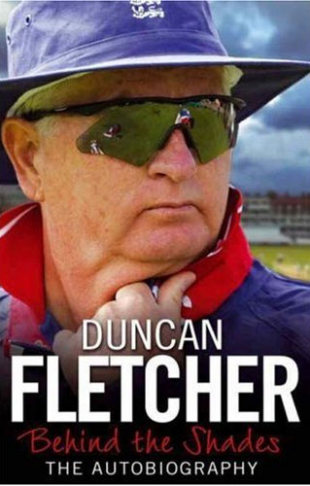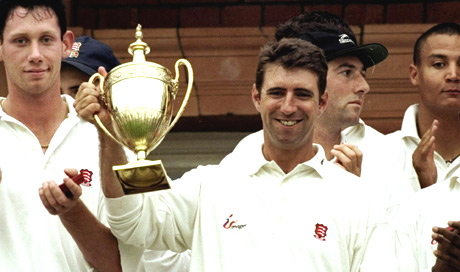Giles Clarke: My Day Off
February 19th, 2009 by Alan Tyers in England, Test cricket, Twenty20, west indies and tagged Alan Tyers, cricket, ECB, giles clarke, stanford, twc, wisden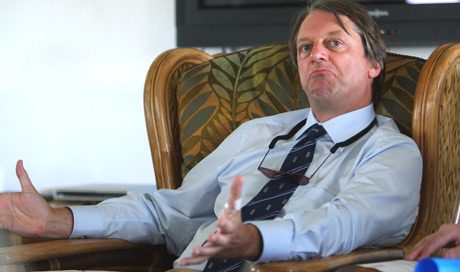
When things get a bit stressful, I like to go back to back to basics, so I’ll sometimes go and spend a day working at Majestic Wines in Taunton, the place where it all began for me. Other than that bank, I suppose, where I pioneered the idea of giving 100,000 per cent mortgages to unemployed American Betamax factory workers to buy castles.
Nobody could possibly have foreseen the outcome: I did every bit of due diligence one could imagine. I even met one chap personally – ghastly of course. He said he was richer than God himself and could he get a mortgage on this rather nice pad in Park Avenue so what can you do?
It has not been a terrific day so far at good old Majestic. My new pal Mr P Montgomery Roosterbender, who runs the Ribs ‘n’ Securities Roadhouse in the High Street, came in to see about his orders for the week. I suggested quite a nice mixed case of Merlots and Pino Grigio.
“Goddammit Clarkleton,” he shouted in that charming way Americans have. “Don’t you know I can’t stand wine? It bores the goddamm hell out of me.”
“Absolutely right, your magnificence,” I shot back, to show him that I wasn’t prepared to take that sort of thing lying down. “It’s a ridiculous drink and totally old fashioned, nobody drinks wine any more apart from complete losers and stick-in-the-muds.”
Instead, I sold him a few cases of Blu Cardiobang, a very exciting new alcopop that gets you paralytic in under nine seconds and thus saves you all that boring business of having to go to a pub for a drink and talk to your friends and other outdated rubbish. I utterly refute the rumours that it is made from bits of depleted uranium and pureed swan, and those know-nothing idiots – I’m looking at you, British Medical Association, the Lancet, etc – who say it causes heart attacks are simply living in the past.
A slightly odd thing happened, though, when Mr Roosterbender came to pay for it. He opened his wallet, and there was a very great deal of money in there. I saw it with my own eyes. He said it would be much easier for everybody if he could just give me a cheque though, and naturally – being an expert businessman who know exactly how business deals are conducted – I agreed.
I did tactfully mention that it wasn’t a type of cheque that I had seen before, written as it was on the back of a napkin and signed “Go to hell, Clarkesville, you’ll not see a penny from old Roosterbender” but that’s very much the way business is done in the modern world and nobody could possibly have guessed that there might be something fishy about the chap.
Alan Tyers will be shopping in Oddbins from now on
Posted in England, Test cricket, Twenty20, west indies | 1 Comment »

